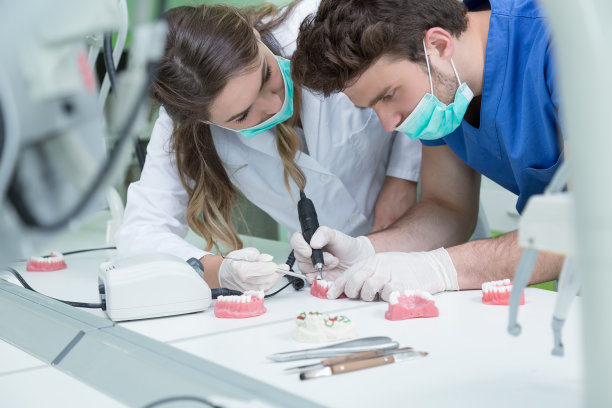Summary: Dental implantation is a transformative procedure for restoring smiles and improving oral health. However, optimal success and recovery require careful consideration of various essential precautions prior to surgery. This article explores four critical aspects: thorough dental assessment, selecting the right dental professional, understanding the implant procedure, and post-operative care. Each section discusses the key factors to evaluate, enabling patients to make informed decisions. Adhering to these precautions not only enhances the likelihood of successful outcomes but also supports smoother recovery, ensuring patients enjoy the full benefits of their dental implant.
1. Comprehensive Pre-Procedure Dental Assessment

A comprehensive dental assessment is the first step in preparing for a dental implant. This evaluation usually includes X-rays and 3D imaging to assess the jawbone’s condition and determine sufficient bone density for the implant. Patients should communicate their medical history, including any chronic illnesses or medications, as these factors can affect the healing process and overall success of the implant.
Another important component of the assessment is a thorough examination of the gums. Healthy gums are critical for implant success, as they provide the necessary support for the implant. Gum disease or other dental issues must be addressed prior to proceeding with the implantation to avoid complications.
Lastly, discussing expectations and potential risks with your dental professional during this assessment is vital. Understanding the challenges and success rates will empower patients, helping them make informed decisions that align with their health goals.
2. Choosing the Right Dental Professional
Selecting a qualified and experienced dental professional is pivotal in ensuring the success of dental implantation. Patients should seek out dentists who specialize in implant dentistry and who hold valid certifications to practice this intricate field. Experience can significantly influence the quality of the procedure, so looking into the professionals track record and patient reviews is advisable.
Additionally, scheduling consultations with multiple professionals can provide valuable insights. During these consultations, patients can assess the dentist’s communication skills, approach to patient care, and willingness to answer questions. Feeling comfortable and well-informed is crucial, as this relationship will be fundamental throughout the process.
Finally, understanding the technologies and techniques the dental professional utilizes can enhance patient confidence. Ensuring the use of state-of-the-art equipment and the latest methodologies can affect both the immediate and long-term success of the implant.
3. Understanding the Dental Implant Procedure
A clear understanding of the dental implant procedure itself is essential for patients preparing for the surgery. Knowing the step-by-step process—from the initial planning, templating, and actual placement of the implant—can alleviate anxiety and promote a sense of empowerment. Patients should inquire about sedation options as well, which can make the experience more comfortable.
Moreover, understanding the timeline for the entire treatment, including healing periods, follow-up appointments, and the final stages of attaching the crown, helps in managing expectations. Each phase requires specific care and adherence to instructions, which impacts overall success.
Additionally, discussing potential discomfort and recovery periods can optimize preparation for post-operative care. With clearer expectations, patients are better equipped to manage their recovery, leading to improved outcomes.
4. Importance of Post-Operative Care
Post-operative care plays a pivotal role in the recovery and long-term success of dental implants. Following the procedure, patients must adhere to their dentists specific instructions regarding oral hygiene, medication, and dietary restrictions. Maintaining impeccable oral hygiene is crucial in preventing infection and promoting healing.
Patients are also encouraged to avoid smoking and alcohol, as these can interfere with healing and increase the risk of complications. Staying hydrated and consuming a nutrient-rich diet can further support recovery, ensuring the body has the resources it needs to heal effectively.
Lastly, attending follow-up appointments is essential for monitoring the healing process. These check-ups allow dental professionals to address any concerns early and provide additional advice tailored to the patient’s recovery journey, ensuring a more tailored and successful outcome.
Summary:
In conclusion, the journey to successful dental implantation begins well before the surgery itself. Assessing dental health, selecting the right professional, understanding the procedure, and adhering to meticulous post-operative care all contribute significantly to achieving optimal outcomes. Each step of preparation aids in enhancing the overall experience and recovery, paving the way for a revitalized smile.
This article is compiled by Vickong Dental and the content is for reference only.
Vickong Dental
Vickong Dental is a large medical group established in Hong Kong in 2008 by professors from well-known medical universities in Guangdong and Hong Kong, as well as medical doctors from key national '985' universities (including Master's supervisors and senior professors). The chain of branches brings together expert dentists with PhDs and Master's degrees from Hong Kong and Mainland China, committed to providing high-quality dental treatment.
"Vickong Dental Practices the University Motto of 'Healing and Serving Society,' with a Stable Operation for Sixteen Years. It Has Been honored with Hong Kong Enterprise Leaders's Choice,' and is a Global Trusted Implant Center for the Nobel Implant System. Recommended by Hong Kong Metro Broadcast and Guangdong Television, it Serves Customers from Over Thirty Countries and Regions, Gaining the Trust and Favor of Citizens from the Guangdong-Hong Kong-Macau Greater Bay Area and Surrounding Cities.

Thousands of customers' unanimous praise
The most recognized and highly recommended dental service by customers in the Guangdong-Hong Kong-Macau Greater Bay Area
We Ensure You Receive Detailed Care and Attention Here
Hong Kong standards, Shenzhen prices, Your Trusted English-speaking dentists

Vickong Dental Medical-Grade Instrument Disinfection Process
Vickong Dental Medical-Grade Instrument Disinfection Process

Vickong Dental Chain: A Warm and Comfortable Environment for Treatment






Appointment Hours

Q&A
Why choose Vickong Dental?
Vickong Dental practices the university motto 「Medicine to Benefit Society」, with each branch bringing together highly qualified dentists with doctoral and master’s degrees from Hong Kong and the Mainland, and has maintained seventeen years of steady operation。Recipient of 「2024 Hong Kong Enterprise Leaders Brand」, 「2025 Hong Kong Enterprise Leaders Brand」, a Nobel Biocare Global Trusted Implant Center, and a brand recommended by Metro Radio Hong Kong and Guangdong TV。
To date, we have served customers from more than thirty countries and regions,earning exceptionally high word-of-mouth recognition and trusted recommendations from residents across the Guangdong-Hong Kong-Macao Greater Bay Area and surrounding cities
We have eight major branches in Zhuhai、Shenzhen,and a consultation and service assurance center in Hong Kong,so you can book a free consultation at any time for any questions,which is very reassuring.
If I do not accept the quotation after the CT scan, will I be charged??
No! As long as the actual treatment has not started, you will not be charged any fees.
Will there be any additional charges during the treatment process?
No, there won’t be any additional charges. Before treatment begins, we will clearly explain the treatment plan and its corresponding fees. Only after the patient agrees and signs the consent form will we proceed with the dental service.
Can I pay in Hong Kong dollars?
Yes. Vickong Dental accepts payment in Hong Kong dollars. The amount will be converted based on the exchange rate of the day, and the applicable rate will be clearly communicated to you in advance.
Can I reschedule my appointment at any time?
Yes. Please contact us via **WeChat** or **WhatsApp** as early as possible, providing your original appointment time and details, along with your preferred new date and time slot for rescheduling.













